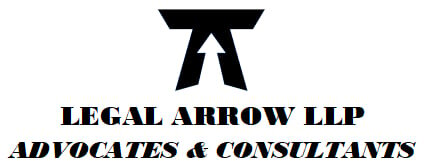Best Whistleblower & Qui Tam Lawyers in Mumbai
Share your needs with us, get contacted by law firms.
Free. Takes 2 min.
List of the best lawyers in Mumbai, India
About Whistleblower & Qui Tam Law in Mumbai, India:
The term "Whistleblower" refers to an individual who reveals illicit activities, misconduct, fraud, or corrupt practices within a public or private sector organization. In India, this includes exposing corruption in government agencies, corporate entities, or other such bodies. "Qui Tam" is an aspect of the Whistleblower law wherein an individual who assists a prosecution can receive all or part of any penalty imposed. While India does not have defined Qui Tam Provisions like USA, it has robust whistleblower protection laws in place.
Why You May Need a Lawyer:
Whistleblowing can have significant personal and professional consequences. A whistleblower may face retaliation from their employer, including harassment, discrimination, demotion, or even termination. Moreover, without proper legal representation, they may not receive the protection or compensation to which they are entitled. A lawyer can help build a strong case, protect against retaliation, and ensure that the whistleblower's rights are respected.
Local Laws Overview:
The key Indian legislation for whistleblowers is the Whistle Blowers Protection Act, 2014. This law provides a mechanism for individuals to disclose information about corruption or willful misuse of power by public servants, including ministers. However, it is noteworthy that this act does not extend to the private sector. For private sector employees, provisions under the Companies Act 2013, make it mandatory for companies to establish a vigil mechanism for directors and employees to report concerns of unethical behavior.
Frequently Asked Questions:
1. What are my rights as a whistleblower in Mumbai?
As per The Whistle Blowers Protection Act, 2014 and various other related laws, whistleblowers have the right to protection from any form of retaliation for exposing wrongdoing in an organization. This includes protection from termination, demotion, harassment or any form of victimization.
2. Can I remain anonymous when whistleblowing?
Yes, you can remain anonymous when whistleblowing. However, maintaining anonymity may make it more difficult to protect your rights if you experience retaliation or discrimination. A lawyer can provide advice on the best course of action.
3. Can I receive compensation for whistleblowing?
While there are no direct Qui Tam provisions in Indian law, certain statutes may enable you to claim some form of compensation or benefit, under specific circumstances.
4. Are private sector employees protected under whistleblower laws?
Provisions under The Companies Act, 2013 mandate companies to set up a vigil mechanism for directors and employees, thereby ensuring a degree of protection for whistleblowers in the private sector.
5. What constitutes whistleblowing?
Whistleblowing involves the act of exposing any form of wrongdoing within an organization. This includes, but is not limited to, corruption, fraud, unethical conduct, illegal activities, or any actions that go against public interest.
Additional Resources:
The websites of Securities and Exchange Board of India (SEBI) and The Ministry of Law and Justice can provide additional information about whistleblowing laws in India. Non-governmental organizations such as Transparency International India provide resources and assistance for whistleblowers and other anti-corruption activists.
Next Steps:
If you need legal assistance in a whistleblowing case, the first step is to consult an attorney who specializes in this area of law. To build a strong case, you should gather and preserve all evidence related to the misconduct. This could include emails, documents, voice recordings, memos, or any form of written and verbal communications that support your case.
Lawzana helps you find the best lawyers and law firms in Mumbai through a curated and pre-screened list of qualified legal professionals. Our platform offers rankings and detailed profiles of attorneys and law firms, allowing you to compare based on practice areas, including Whistleblower & Qui Tam, experience, and client feedback.
Each profile includes a description of the firm's areas of practice, client reviews, team members and partners, year of establishment, spoken languages, office locations, contact information, social media presence, and any published articles or resources. Most firms on our platform speak English and are experienced in both local and international legal matters.
Get a quote from top-rated law firms in Mumbai, India — quickly, securely, and without unnecessary hassle.
Disclaimer:
The information provided on this page is for general informational purposes only and does not constitute legal advice. While we strive to ensure the accuracy and relevance of the content, legal information may change over time, and interpretations of the law can vary. You should always consult with a qualified legal professional for advice specific to your situation.
We disclaim all liability for actions taken or not taken based on the content of this page. If you believe any information is incorrect or outdated, please contact us, and we will review and update it where appropriate.














